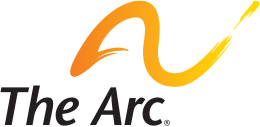ISSUE
Individuals with intellectual and/or developmental disabilities often are not treated equally. They have been labeled by their disability and separated from the community. For many years they were relegated to sterile, dehumanizing institutions. Even as they have begun living in the community, they have experienced exclusion from its schools, jobs, and social life. Moreover, the services they receive frequently segregate, isolate, and focus on an individual’s deficits rather than their strengths and lifestyle choices.
POSITION
All people benefit when persons with intellectual and/or developmental disabilities are included in community life. People with disabilities should be welcomed and included in all aspects of our society. This includes public activities, programs and settings, and private establishments which are open and accessible to members of the general public. People with disabilities should receive the supports they need to participate actively in community life without having to wait.
Children should have the opportunity to:
- Live in a family home;
- Have access to the supports that they need;
- Grow up enjoying nurturing adult relationships both inside and outside a family home;
- Enjoy typical childhood relationships and friendships;
- Learn in their neighborhood school in a general education classroom that contains children of the same age without disabilities;
- Participate in the same activities as children without disabilities;
- Play and participate with all children in community recreation; and
- Participate fully in the religious observances, practices, events, and ceremonies of the family’s choice.
Adults should have the opportunity to:
- Have relationships of their own choosing with individuals in the community, in addition to paid staff and/or immediate family;
- Live in a home where and with whom they choose;
- Have access to the supports that they need;
- Engage in meaningful work in an inclusive setting;
- Enjoy the same recreation and other leisure activities that are available to the general public; and
- Participate fully in the religious observances, practices, events, and ceremonies of the individual’s choice.
Rev’d 2015
Joint statement with the American Association on Intellectual and Developmental Disabilities (AAIDD).
1“People with intellectual disability and/or developmental disabilities” refers to those defined by the AAIDD classification and DSM IV. In everyday language they are frequently referred to as people with cognitive, intellectual and/or developmental disabilities although the professional and legal definitions of those terms both include others and exclude some defined by DSM IV.






